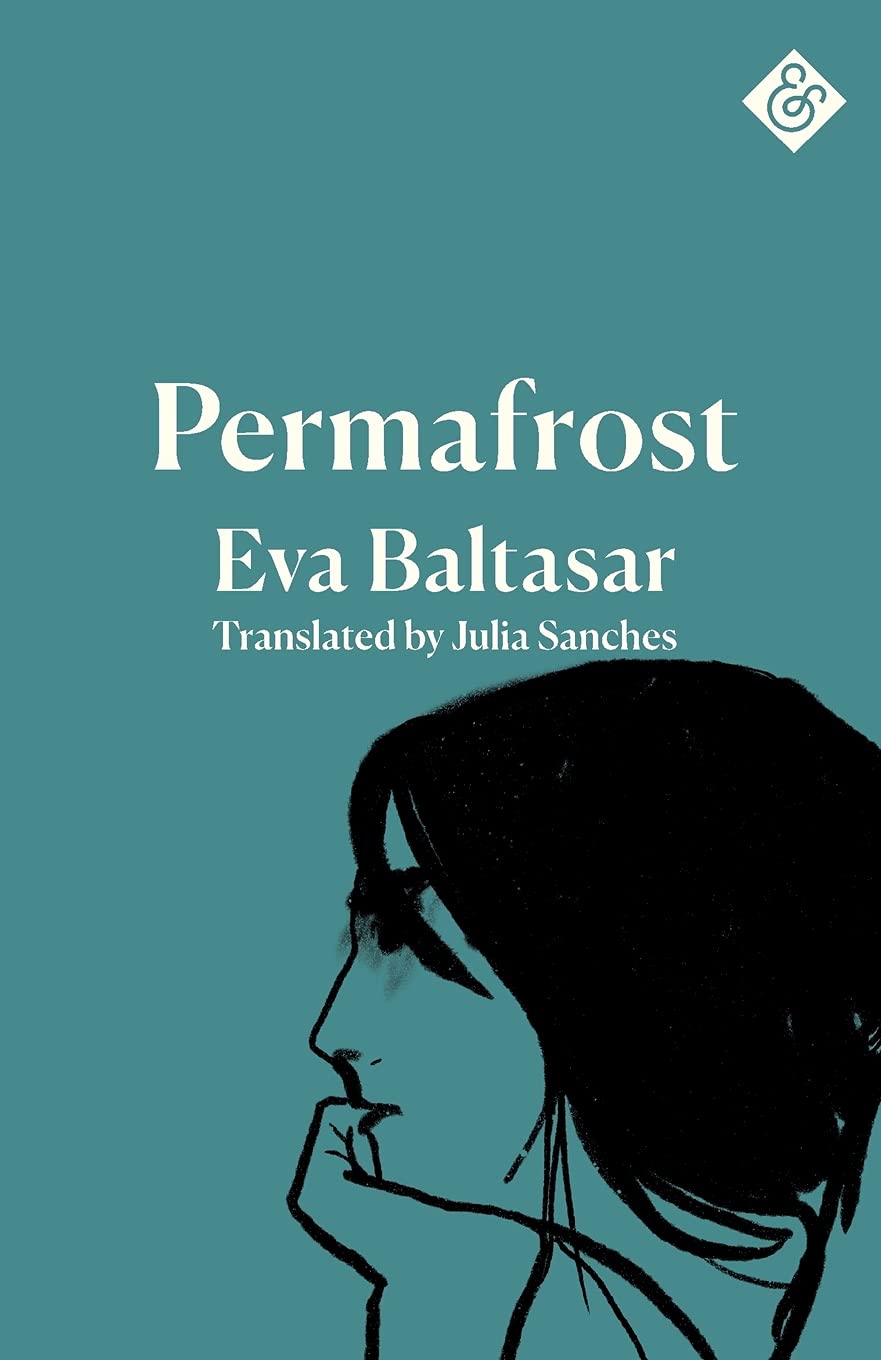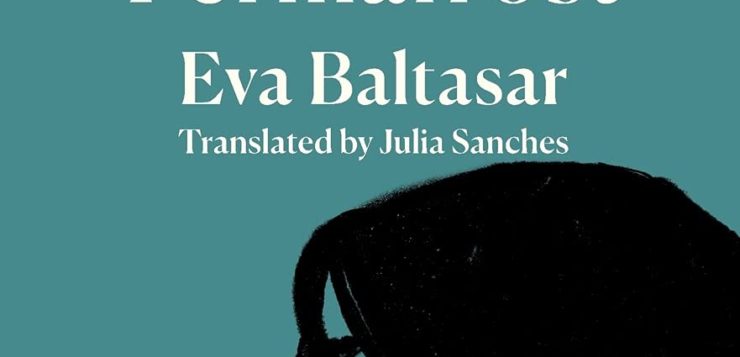 PERMAFROST
PERMAFROST
by Eva Baltasar
Translated by Julia Sanches
And Other Stories. 128 pages. $15.95
REFERENCES to extreme weather appear often in this era of climate change, even in the most unlikely contexts. Eva Baltasar’s Permafrost combines the personal with the universal, and the images of permanent ice and other transparent substances operate on several levels. In the first scene, the unnamed narrator muses: “It’s nice, up here. That’s the thing about heights: a hundred meters of vertical glass. The air is air at a higher degree of purity and so also seems harder, at times almost solid.” After describing the view from atop a high building, she says: “Right now, I am and am not.” The reader is jolted by the realization that she is considering a deliberate jump to her death. The nameless, youngish woman considers suicide several times in the narrative.
The narrator’s reasons for seeking ways to end her life emerge gradually from a series of loosely connected chapters. While attending university in Barcelona and subletting her aunt’s apartment, the narrator discovers the Internet, which gives her “unforeseen access to lesbians.” Her affairs seem colorful, satisfying, and sometimes hilarious, especially when she travels to other European cities, and meets willing women wherever she goes. However, she says: “I couldn’t seem to fall in love.”
The narrator’s affairs could have been presented in a picaresque erotic narrative like the story of Don Juan, yet her lesbian coming-of-age adventures don’t lead to lasting joy or true intimacy. Childhood memories of the narrator’s mother, aunt, and sister provide clues about her approach to relationships in general. As the narrator explains: “when you’re a kid, your home life determines what’s normal. And this normalcy shapes you.”
The conservatism of her Spanish family includes a kind of homophobia that is casual and insidious rather than passionately religious. For the women of her family, heterosexual marriage and childbearing are signs of respectability and the glue of family life. From a young age, the narrator is aware of being an outsider, more disconnected than despised. Yet she can’t avoid her female relatives, who tell her all about their lives.
Even when she graduates from university with a degree that she considers useless, the narrator has no ambition and no sense of how to become an adult on her own terms. She observes the world instead of engaging with it, as though watching a passing scene from behind glass. Her deadpan humor serves to insulate her from emotion.
This novel was originally written in Catalan, a language that my Chilean spouse assures me is quite different from Spanish. The translator confirms this in an afterword. The author wrote ten volumes of poetry before tackling fiction, and this short novel has a poetic lyricism that is probably enhanced in the original by her use of a minority language. The author, who claims to live “a simple life with her wife and two daughters,” describes this book as the first “in a triptych which aims to explore the universes of three different women in the first person.” The English translation suggests that Eva Baltasar has a distinct voice, and the sequels to her first novel will be worth watching for.
____________________________________________________
Jean Roberta is a widely published writer based in Regina, Saskatchewan.






